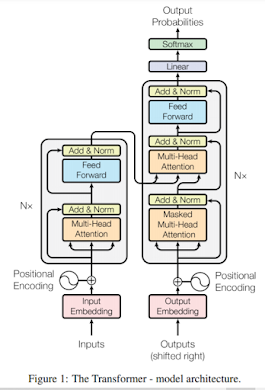Attention Is All You Need !
Attention Is All You Need – Paper review
This article gives a quick 2-minute
understanding of transformers intuitively. For in-depth understanding please
refer to the paper in the reference given below.
What did the author try to accomplish?
One of the main problems of using
traditional encoder decoder models with RNNs in the encoder part is the sequential
processing of input in the encoder model which does not allow parallelization of
processing the input.
The authors tried to address this
problem of sequential processing in these encoder decoder models using a new
Transformer architecture. The architecture of this proposed transformer model
is shown below.
The other major change in this
architecture is the removal of RNN cells and using attention mechanism
only. This is because at every time step the entire input is provided to the
model.
This new transformer model,
dominated the sequence-to-sequence models and opened up a new era of deep
learning and soon transformer-based models started taking the crowns as state-of-the
art models in the domain of NLP.
What are the key elements of the approach?
1.Self attention and Multi-head attention:
In self attention every token of
the input is compared to every other token to get the attention scores. This is
helpful because every token in the input might be related to other tokens in
the input. Using multiple transformation to catch different kind relations led
to multi-head self-attention. Using of this self-attention led to some serious
time complexity issues which is later addressed by another architecture called
Reformer.
2.Positional encoding:
This is used to encode the position
information of each of the tokens of the input and the partial output given to
the model.
To learn more about this topic
refer to the paper for better understanding.
References:
1. Waswani, A., N. Shazeer, N. Parmar, J. Uszkoreit, L. Jones, A. N. Gomez, L. Kaiser, and I. Polosukhin. "Attention is all you need." In NIPS. 2017.

Comments
Post a Comment